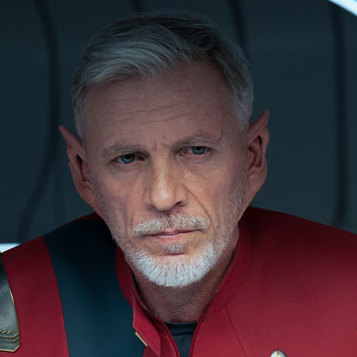Logline
A shuttle accident leads to Spock’s Vulcan DNA being removed by aliens, making him fully human and completely unprepared to face T’Pring’s family during an important ceremonial dinner.
Written by Kathryn Lyn & Henry Alonso Myers
Directed by Jordan Canning


Some of the criticisms fall in another category of beating on SNW’s alleged canon ‘violations’.
These include assertions that Chapel ‘isn’t the same person’ as she doesn’t have the same temperament/personality as in TOS, Uhura not having met or known of T’Pring before Amok Time, etc., Spock would have been ashamed to have eaten animal products (bacon), T’Pring’s ears have the wrong shape
While I can be quite critical of incoherence in plot threads or characters within a single show, especially in a single season (say in Discovery season two or every season of Picard), to me that’s a problem in how a set of writers are telling a specific story.
I’ve come to realize that the fans who just can’t get past continuity changes they can’t resolve immediately across the entire history of the franchise just aren’t going to enjoy SNW as much as I am.
I classify these inflexibilities as:
— not being open to the possibility that the characters may grow and change,
— not being open to the possibility of characters being unreliable narrators or saying things ironically in later shows (e.g., in TOS Uhura might tweak Spock about T’Pring to press him to identify who she is, even if she personally knew exactly who she was),
— refusing to accept that minor changes in timing, visual design, technology and characters are possible due to intertemporal interference as long as the Prime continuity maintains key/essential events.
In the end, hanging out here to have conversations with folks who are a bit more flexible is a better choice for me.
Identifying potentially unreliable narrators is such an underrated strategy! So a character says “The Federation has never encountered this race/phenomenon before.” Off to Memory Alpha to state this as fact! But of course, people state beliefs as facts, incorrectly, all the time in real life!
I find the implicit assumption that everything onscreen is ‘fact’ exasperating.
More episodes than not depend on guest or recurring characters providing inaccurate, incomplete or outright deceptive information. In many cases, the plot hangs on whether the hero crew can deduce or find more evidence about what’s actually going on.
To assume that everything not directly contradicted in an episode is true is boggling.
I think the problem with that is a TV show has a limited amount of time to set up a problem and then solve it. The truly great writers can get around this by spreading information out over multiple episodes through a season, and it gives them more time to deal with incorrect information, allowing the characters to recognize that some information is actually false and then adjust course. In fact it can make for a great plot twist to build on bad information through a season and then reveal everything we’ve been told is in fact wrong!
However when your plot is limited to a single hour, you simply don’t have the time to find out something is wrong, the characters just have to charge forward with what they know, assume everything is factual, and execute a plan to fix the problem. And in many episodes the build-up barely leaves any time for getting things resolved.
It would be nice to see more huge multi-episode plot arcs though. I’ve seen it happen in some seasons of Doctor Who and it’s just incredible when they pull it off smoothly because you get little hints along the way about something but no real context about what it means until it all gets put together at the end of the season. Would love to see more of that in Star Trek. I think Discovery used that in the first couple seasons but then lost it, and nothing else really stands out for me in previous shows.
We do have even so numerous examples of self-serving perspectives and irreconcilable reports across the episodic shows.
Take Lwaxana Troi’s belief that Picard is attracted to her, which Picard denies vehemently. Lwaxana is a formidable telepath. We are given to believe that her perception is some kind of middle age woman’s foible, and Picard is to be believed because he’s the hero. Do we ever see the factual truth confirmed? No.
So, I am more than willing to let main characters be wrong in their recollections or perceptions even if it’s not absolutely confirmed in the shows.
ENT actually did this, which is odd to think how pioneering that series was at the time.
But there were several plot lines that built up over the series and some which didn’t even have pay off until the last season just before the series was canned.
It’s been a long time since I watched that series, it wouldn’t surprise me if I’ve forgotten a lot.